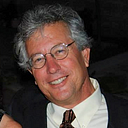SAQs for APUSH Topic 5.7 — Election of 1860 and Secession
2 min readApr 13, 2021
Four short answer questions designed to help students review for the annual exam and that relate to the election that served as the main catalyst of the Civil War.
- During the 1850s, the United States had become increasingly divided sectionally. What does the phrase “divided sectionally” mean?
- In 1858, Lincoln gave his House Divided Speech. In that speech, Lincoln said, “A house divided against itself, cannot stand.” What does that mean? He also said “I believe this government cannot endure permanently half slave and half free . . . I do not expect the Union to be dissolved — I do not expect the house to fall — but I do expect it will cease to be divided . . . it will become all one thing or all the other . . . either the opponents of slavery will arrest the further spread of it, and place it where the public mind shall rest in the belief that it is in the course of ultimate extinction; or its advocates will push it forward, till it shall become lawful in all the States, old as well as new — North as well as South.” With all that said, Lincoln disavowed himself from the long advocated notion of popular sovereignty. What is “popular sovereignty?”
- Abraham Lincoln’s victory on the Republicans’ free-soil platform in the election of 1860 was accomplished without any Southern electoral votes. What is meant by the term “free soil platform?” What are “electors?” Lincoln’s Republican Party, from 1856 on, had replaced what political party as the major opposition to the Democrats?
- After a series of contested debates about secession, most slave states voted to secede from the Union, precipitating the Civil War. What form of government did the seceding slave states establish? A unitary form of government, a federal form of government, or a confederate form of Government?
